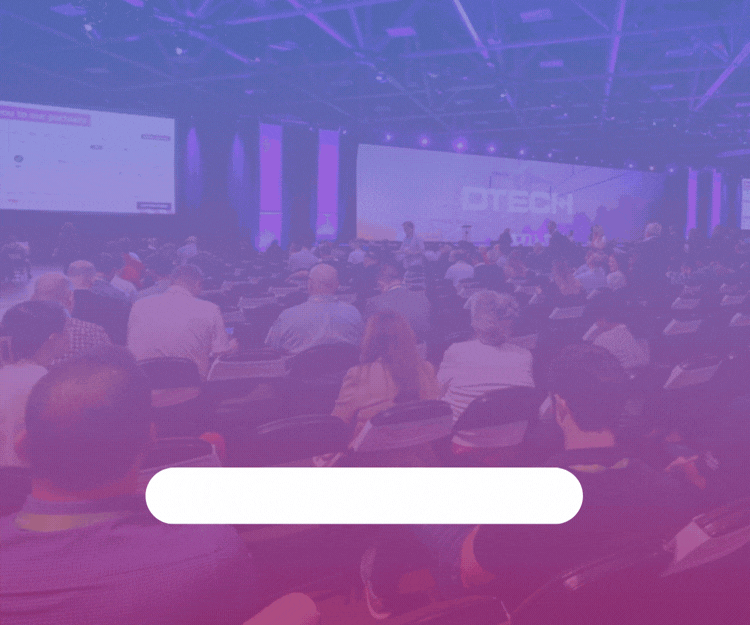For about five years, Bobbi Harris has been the executive director of the Utility Broadband Alliance (UBBA). If you're unfamiliar with UBBA, the organization strives to empower utilities and eco-system partners in the development of private broadband networks as a key enabler of the utility of the future. For our Q3 issue's Powherful Forces profile, we asked Harris to talk about her career trajectory, her role at UBBA and UBBA's role in the utility sector.
How I landed in the utility sector
I began my career in high-tech, data analytics and software marketing more than 25 years ago and never once imagined that experience would ultimately lead me to the utility sector. At that time, utilities just mailed a bill once a month and didn’t seem very high-tech to the general public.
Thankfully, as the industry embraced increasing digitalization, my career moves (whether planned or not) led me to work on software and analytics tools built for utility use. These solutions, such as SCADA software, Advanced Metering Infrastructure (AMI) tools and Distribution Automation solutions, all had elements of utility telecommunications infrastructure and networks, so I learned a lot about the evolution of utility technology. I was hooked!
Water, gas and electric utilities all had one thing in common: they needed to change to meet the more demanding needs of the customers they served. Utilities needed to learn how to communicate internally to share operational data to gain efficiencies — and externally with customers, in order to show they were more than just a “ratepayer.” This is where my communications skills and passion for protecting our resources finally melded into a career, and I never want to leave the utility industry.
Influences and role models
My story isn’t all that different from a multitude of other women who have had to overcome challenges in what was a male-dominated industry. The biggest challenge I faced was being taken seriously in the utility space, not only as a woman but also as a non-engineer. I had to learn everything I could about the technology so that I could intelligently speak with engineers. Thankfully, those early days in software marketing helped me translate “engineering speak” into common terms and translate the bits and bytes into value-added stories. I proved to the people I worked with that I brought value and intelligence equal to but different from their own. Today, I see the utility industry evolving, especially with more women in leadership roles.
When I started my career in this industry more than 25 years ago, we didn’t really have “mentors” so much as we had people we could trust and talk with. That being said, I did have several women I looked up to and would talk with and learn all I could from their careers. Becky Blalock (former SVP & CIO of Southern Company), author of the book “DARE,” was one of the first women leaders in the utility industry that really spoke to me, literally and figuratively. Her book is still one of my go-to books when I need a reminder of what I can do in this industry and beyond.
There are other women who have been role models to me, like the late CEO of UTC, Connie Durcsak, whose vision and passion for the utility telecommunications industry profoundly imprinted on my life and career. Others, like Tami Barron of Georgia Power, Jill Anderson of Southern California Edison, Kim Kerr from UScellular for Business and Jennie Bratten from Ericsson have encouraged and inspired me every day to continue in the industry I love so much. I hope I can be a role model to other women who need to know that whatever their education or career path has been, the utility industry needs passionate and compassionate leaders to take the sector into the future. After all, this business is personal to everyone on the planet.
UBBA’s role in the industry
As the executive director of UBBA, I work with utilities and solution providers across the country to advance education around the deployment of private broadband networks in critical infrastructure industries, including electric utilities. The whole concept for UBBA began about five years ago with just a few key members in a single room, and I’m amazed at how quickly we’ve grown. We incorporated in 2021 and currently count more than 35 utilities in our membership of more than 100 organizations!
At UBBA, we believe private broadband is a critical enabler of utilities’ journeys toward a more secure, resilient and future-proof grid. From connecting advanced metering infrastructure to coordinating distributed energy resources (DERs) to accelerating outage restoration efforts, high-speed communication is essential to meeting the challenges utilities face in 2024 and preparing them for what’s to come. Through our continuing industry education, we’re providing the resources and opportunities for utilities to learn more and share best practices around deploying private broadband networks, as well as collaboration opportunities that enable them to learn from their peers who are at different stages of this journey.
What we’re working on
We recently filed public comments in support of the Petition for Rulemaking requesting that the Federal Communications Commission (FCC) provide an option allowing for the deployment of 5/5 megahertz broadband networks in the 900 MHz band. Previously, the FCC determined to realign the 900 MHz band and establish a 3/3 MHz broadband segment, a landmark step creating a significant opportunity for utilities to design, deploy, and operate private broadband networks. We believe that providing an option for 5/5 MHz broadband operations in the 900 MHz band will promote the continued evolution of a broadband ecosystem to support services critical to the public and the economy.
Another initiative we’re tremendously excited about is our annual UBBA Summit & Plugfest, which we’ll be hosting in November in Kansas City. Last year we achieved record attendance of more than 500 utility and telecommunications technology leaders, and we expect to exceed that total in 2024. It’s a great opportunity for utilities to learn from their peers and discuss a wide range of issues related to the deployment of private broadband networks.
Emerging trends
Everyone is talking about artificial intelligence (AI), and for good reason. The potential use cases for AI in the utility industry are incredibly exciting to our members, who are working to better understand these use cases and educate the industry on the role private broadband communication plays in helping enable them. At the same time, the impact of AI on the grid is significant, as the energy needs of AI – and in particular, AI data centers – far outweigh the infrastructure that is currently available. As demand for AI grows, we anticipate increasing strain on the grid, as has been widely reported, again reinforcing the need for additional grid modernization.
Challenges ahead
It’s no secret that the grid needs significant upgrades to support the rapidly advancing innovations that are shaping our industry, such as electric vehicles. As these technologies proliferate, many have raised concerns about the ability of the grid to support evolving energy needs. Modernizing and improving grid resiliency is the top priority of many utilities, and high-speed communication is a critical building block in their road to grid modernization.
Another challenge is the ever-present need for more stringent cybersecurity. Whether it’s ransomware, data breaches or Denial-of-Service (DoS) attacks, threat actors view the grid as a particularly vulnerable target, and it’s critical that utilities do everything they can to protect themselves and their customers. One of the key benefits of private broadband is that it’s private – only the utility has access to the infrastructure supporting the network, so cybersecurity is baked into the value proposition. This is a key element of our industry education and a priority for many of our members.
Why I love what I do
The phrase “servant leadership” speaks to my core values. I love that my work affords me so many opportunities to champion others while leading organizations in the most essential of industries. My own values and work ethic mimic the utility industry’s core values of providing safe, secure, reliable electric, water and gas services for the communities they serve. Day or night, storm or blue sky, utilities are there to deliver. This is what I love about my work: many times in the background and sometimes on stage, I deliver the things most people take for granted.
 Bobbi Harris is a utility telecommunications and smart city industry expert, the founder of Smart Water, Smart City, LLC and the executive director of UBBA. She is a leader in market analysis, strategic intelligence and marketing strategy. In her years as a global strategic marketing professional, she has focused on utility issues, business drivers and telecom technologies to address water and energy challenges including smart cities, cleantech and green building initiatives. Her insights are sought by key stakeholders, including elected officials, investors, electric, water and gas utility leaders and technology executives worldwide. Harris is one of the ESI 2019 Global Smart Energy Elites. She graduated summa cum laude from Campbell University and earned her MBA from the same.
Bobbi Harris is a utility telecommunications and smart city industry expert, the founder of Smart Water, Smart City, LLC and the executive director of UBBA. She is a leader in market analysis, strategic intelligence and marketing strategy. In her years as a global strategic marketing professional, she has focused on utility issues, business drivers and telecom technologies to address water and energy challenges including smart cities, cleantech and green building initiatives. Her insights are sought by key stakeholders, including elected officials, investors, electric, water and gas utility leaders and technology executives worldwide. Harris is one of the ESI 2019 Global Smart Energy Elites. She graduated summa cum laude from Campbell University and earned her MBA from the same.







